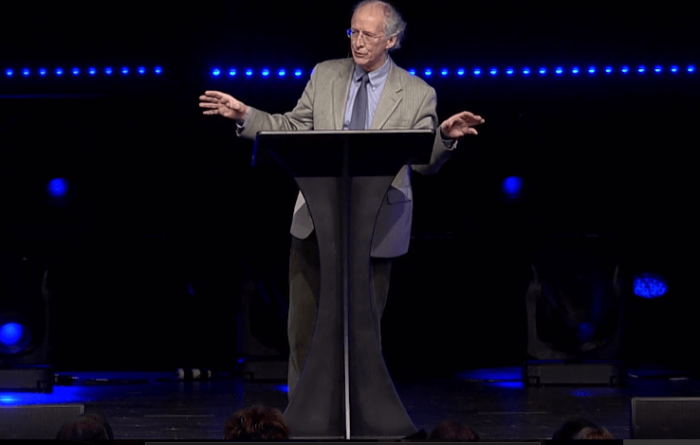Does 'Faith Alone' Save Us? John Piper Explains

One of America's most famous Reformed pastors and theologians is unpacking how God saves people, amid polls showing that a sizable number of Protestants believe both faith and good works are necessary for salvation.
Writing on Desiring God Monday, John Piper, former pastor of Bethlehem Baptist Church, reiterated the importance of justification and the five famous "solas" (Latin for only), which are key doctrines of the Christian faith that Martin Luther and other Protestant reformers emphasized.
The "crux" of both the Reformation and the Gospel, Piper argued, is that we are justified and ultimately saved by the grace of God demonstrated by the finished work of what Jesus did on the cross, and not by any works of man.
"Especially as it pertains to final salvation, so many of us live in a fog of confusion," Piper wrote.
The Reformation's five "solas" are sola Scriptura (Scripture alone), sola fide (faith alone), sola gratia (grace alone), solus Christus (Christ alone), and soli Deo gloria (to the glory of God alone).
"Scripture alone" means that the Bible has the final authority for the believing Christian. "Faith alone" and "grace alone" speak to how the Christian is saved, by faith in Christ and through his grace. "Christ alone" means that only Jesus Christ is Lord, Savior, and King. "To the glory of God alone" refers to how the Christian then lives in light of what Christ accomplished.
And these theological claims are best understood in light of how we are justified, the action of declaring or being made righteous in God's sight, Piper explained.
"James saw in his day those who were treating 'faith alone' as a doctrine that claimed you could be justified by faith which produced no good works. And he vehemently said No to such faith," he said.
James 2: 14-17 reads: "What good is it, my brothers and sisters, if someone claims to have faith but has no deeds? Can such faith save them? Suppose a brother or a sister is without clothes and daily food. If one of you says to them, 'Go in peace; keep warm and well fed,' but does nothing about their physical needs, what good is it? In the same way, faith by itself, if it is not accompanied by action, is dead."
Martin Luther had issues with the book of James, once remarking that "he would give his doctor's beret to anyone who could reconcile James and Paul," according to Luther biographer Roland Bainton. But despite his qualms, Luther did not reject the epistle from the canon of the Bible.
"Faith," Luther once wrote, "is a living, restless thing. It cannot be inoperative. We are not saved by works; but if there be no works, there must be something amiss with faith."
Piper concurred with that definition noting that the "faith which alone justifies is never alone, but always bearing transforming fruit. So, when James says these controversial words, 'A person is justified by works and not by faith alone (James 2:24),' I take him to mean not by faith which is alone, but which shows itself by works."
According to a Pew survey from earlier this year, approximately half of American Protestants said that they believed that both good deeds and faith are necessary for salvation, a belief generally ascribed to Roman Catholicism. Catholics, however, maintain that mere "faith and works" oversimplifies what they believe.




























